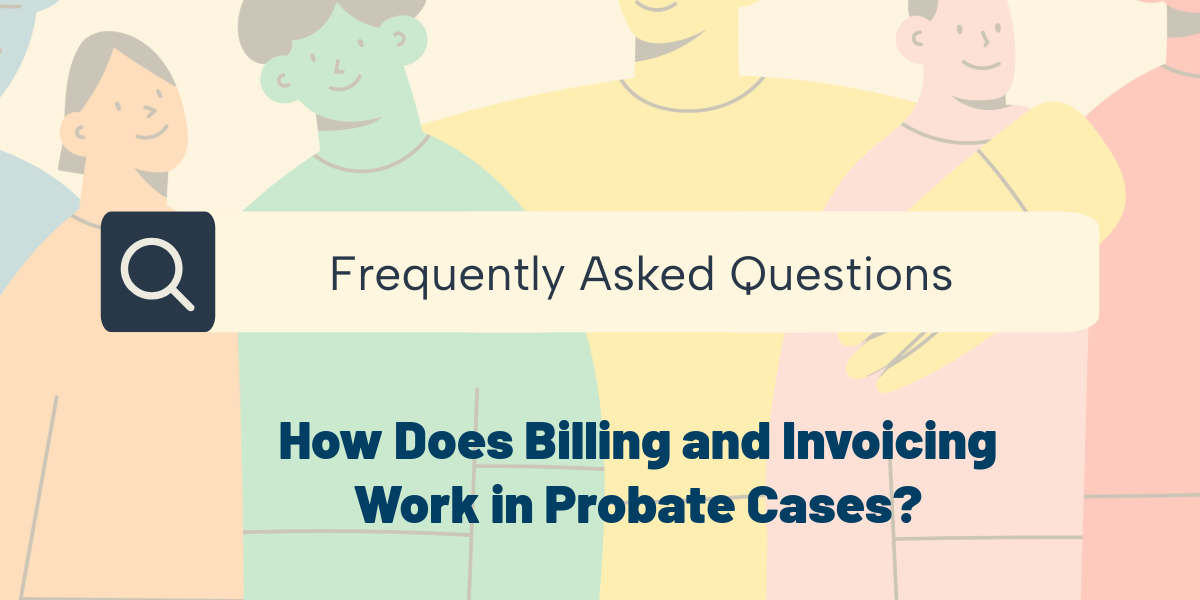How Does Billing and Invoicing Work in Probate Cases?
Detailed Answer
Handling billing and invoicing in a probate matter involves several steps. In North Carolina, attorneys generally use written fee agreements. These agreements outline fees, retainers and invoicing schedules. A clear agreement helps both the personal representative and beneficiaries understand costs from the start.
1. Fee Agreements and Retainers
Before work begins, your attorney will ask you to sign a fee agreement. This document explains whether you pay an hourly rate, a flat fee or a percentage of the estate’s value. Often, the attorney will require a retainer. A retainer is an up-front deposit that covers initial work. The attorney bills against this retainer as the probate administration moves forward.
2. Hourly vs. Flat Fees vs. Percentage Fees
Hourly fees mean you pay for each hour an attorney spends on your case. Flat fees cover a defined task, such as filing the petition for probate. Percentage fees base the cost on a percentage of the estate’s total value. North Carolina law does not forbid any of these structures, but court approval is often necessary if the estate is under judicial supervision.
3. Invoicing Schedule
Attorneys typically send invoices monthly or at key stages—such as after filing the initial petition, completing the inventory or making distributions. Each invoice should list time entries, tasks performed and any out-of-pocket expenses, like court filing fees or postage. These detailed invoices help the personal representative prepare the estate’s financial reports and final accounting.
4. Court Approval of Fees
In many probate estates, especially those requiring formal administration, the personal representative must file a petition to approve attorney fees. Under N.C. Gen. Stat. § 28A-15-1(d), the court reviews the reasonableness of fees and expenses. You can review the statute here: N.C. Gen. Stat. § 28A-15-1.
5. Reimbursable Expenses
Beyond attorney time, you also pay for necessary costs. These include filing fees, publication costs, postage and courier charges. Attorneys bill these out-of-pocket expenses at cost, often with no markup. Your invoice will separate these items for transparency.
6. Final Invoice and Estate Accounting
Once the executor or administrator completes probate tasks, the attorney prepares a final invoice. The personal representative uses this to close the estate accounting. Under N.C. Gen. Stat. § 28A-19-3, the executor files a final account that shows all assets, debts, distributions and fees paid. Accurate invoicing ensures your final accounting is clear and court-ready.
Clear billing and invoicing protect both the estate and the attorney. If questions arise, the personal representative can refer to the written fee agreement and invoices. Proper documentation also builds trust among beneficiaries and helps the court review any fee petitions smoothly.
Key Points to Remember
- Sign a written fee agreement before probate work begins.
- Understand the fee structure: hourly, flat fee or percentage.
- Expect regular invoices with detailed time entries and expenses.
- Court approval of fees often is required under N.C. Gen. Stat. § 28A-15-1(d).
- Reimbursable expenses should appear separately on each invoice.
- Use the final invoice in the executor’s estate accounting per N.C. Gen. Stat. § 28A-19-3.
- Keep all billing records to support beneficiary questions or court reviews.
Ready to Discuss Your Probate Needs?
Probate billing and invoicing can feel complex. Pierce Law Group’s experienced attorneys guide you every step of the way. We draft clear fee agreements, track expenses and help you prepare fee petitions. Contact us today to ensure your probate administration stays on track.
Email us at intake@piercelaw.com or call (919) 341-7055.


